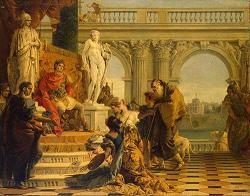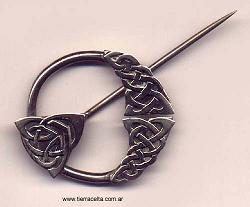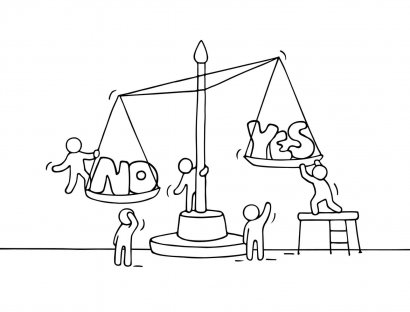 The word patron refers to a person who, because they have sufficient financial resources, takes an artist or scientist under their protection to allow them to carry out their task and benefit from it in some more or less direct way. Patronage is then the establishment of this bond that could, in certain aspects, be compared to the relationship of vassalage that existed in the Middle Ages.
The word patron refers to a person who, because they have sufficient financial resources, takes an artist or scientist under their protection to allow them to carry out their task and benefit from it in some more or less direct way. Patronage is then the establishment of this bond that could, in certain aspects, be compared to the relationship of vassalage that existed in the Middle Ages.
Although patronage existed throughout history, and continues to exist when we speak of individuals with economic power who stimulate scientific research or artistic development, this phenomenon was very characteristic of the Renaissance. At this moment in history, the exit from a traditionally dark period such as the Middle Ages, meant the appearance of countless artists who followed new artistic precepts and who sought to represent reality as they observed it instead of representing reality. God. Thus, many bourgeois and aristocrats (mainly located in the flourishing cities of Italy) sought to be portrayed in their importance and magnificence in a period in which the representation of God and the Christian elements had begun to lose centrality.
Among the most important patrons we must mention without a doubt the Medici, an important and famous family from Florence. Many members of it gladly became patrons of artists who would later be recognized worldwide for their talent, many of whom are known to this day as the most important representatives of the Renaissance. At the same time, it is important to point out that, thanks to the action and economic contribution of these patrons, the Renaissance would also become a period of high artistic and cultural growth: it was these patrons who requested and paid the artists, thus allowing them to gain access to a minimum income and thus succeed in the art world.









